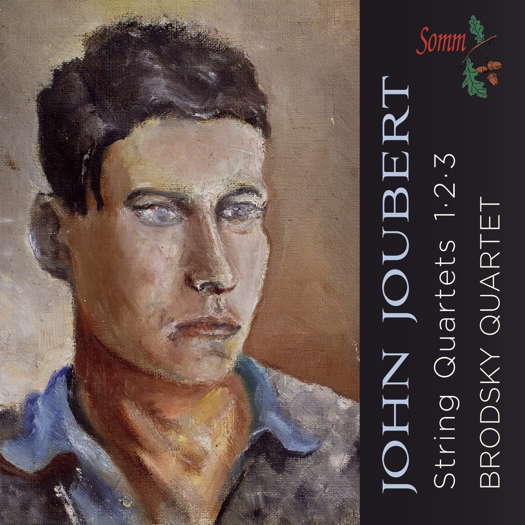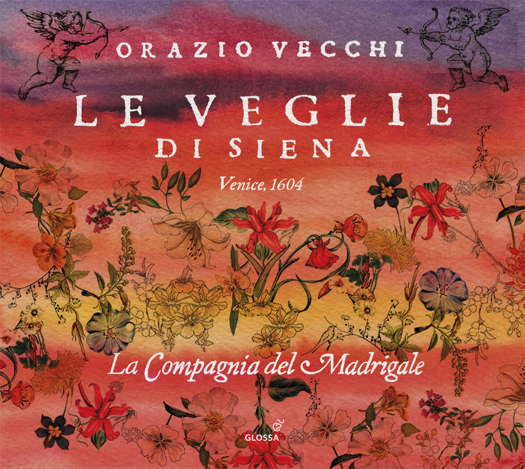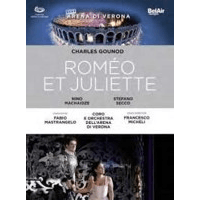 SPONSORED: CD Spotlight. A Fascinating Recording - John Joubert's string quartets, heard by Alice McVeigh.
SPONSORED: CD Spotlight. A Fascinating Recording - John Joubert's string quartets, heard by Alice McVeigh.
All sponsored features >>

Siena Vigils
GERALD FENECH listens to Italian madrigals by Vecchi
'Inspirational performances ...'
Orazio Vecchi (1550-1605) was born in Modena and studied with Salvatore Essenga, a Servite friar there. In addition he prepared for holy orders with early education at the Benedictine monastery and took holy orders sometime before 1577. By the end of the 1570s he was well connected with the composers of the Venetian school since he collaborated with them in writing a 'sestina' for a ducal marriage. During this period he accompanied Count Baldassare Rangoni on his travels, going to Bergamo and Brescia.
He was maestro di cappella at Salò Cathedral between 1581 and 1584. Following this, he was the choir master at the Cathedral of Reggio Emilia until 1586. In that year he moved to Correggio where he was appointed canon of the cathedral there. He composed copiously during this time there, though he felt isolated from the major musical centres of Italy such as Rome, Verona, Florence and Ferrara. Eventually he went back to Modena with the hope of putting things straight, but considerable financial difficulties hampered the advancement of his career.
In 1594 his madrigal comedy L'Amfiparnaso, his best known composition, was premiered in Modena. In 1597 it was published in a lavishly illustrated edition. That same year he visited Venice, where he published a collection of canzonette, plus a huge amount of other music. In his last months he returned to Modena where he continued to serve in the cathedral until his death on 19 February, aged only fifty-four.
Vecchi was renowned for his madrigals, especially his grouping of them together in a new form called the 'madrigal comedy'. This was a light popular and dramatic entertainment form of the late sixteenth century, sometimes regarded as one of the precursors of opera.
The work on this disc, Le Veglie di Siena ('The Night Games of Siena'), was composed in 1604, a year before Vecchi's death, and this entertainment comes in two parts. The first embraces pleasant mimicry of the manner of speaking of Italians and foreigners and a high-spirited madrigal group, La caccia d'Amore ('The Hunt of Love').
Listen — Orazio Vecchi: E dov'è questo ribello? (La caccia d'Amore)
(GCD 922812 CD1 track 10, 0:00-0:56) ℗ 2024 note 1 music gmbh :
Part two is more serious in tone, but with a kaleidoscope of musical styles representing umori or moods. A vivid sense of theatricality from the vocal sextet is complimented by a modern master of the commedia dell'arte, the actor and director Antonio Fava. Nuances, attention to words, compelling humour and ribaldry were all revelled in by Italian patrician society, and Vecchi obliged with some truly beautiful music, achieving a fame which was cut short by his early death.
Listen — Orazio Vecchi: Mirate alme gentil (Seconda parte delle veglie)
(GCD 922812 CD2 track 15, 5:30-6:25) ℗ 2024 note 1 music gmbh :
Le Veglie di Siena is generally regarded as his spiritual testament. Inspirational performances plus Marco Bizzarini's compelling essay places this madrigal comedy in the contexts both of its time and of recent scholarships, whilst making plain the rumbustious fun there is to be had in the company of madrigalists as fine as can be heard on this new double-disc set.
Listen — Orazio Vecchi: Hor che la vegghia è numerosa (Il gioco delle imitationi)
(GCD 922812 CD1 track 1, 3:03-3:54) ℗ 2024 note 1 music gmbh :
A splendid and delightful release to refresh the mind and woo the ears.
Copyright © 30 May 2024
Gerald Fenech,
Gzira, Malta




